I completed my B.Tech in Information Technology in 4 years. I got a Post Graduate Diploma in TV Journalism in 1 year. These are credentials that go on my resume. I never thought in my life that my debut feature-length documentary film will take much longer than my degree and diploma – and even though I won’t get a certificate for making it (except the CBFC) it would turn out to be the most gratifying experience of my life and earn me accolades from around the world.
At the end of it, I can confidently say that I am as proud of my educational degrees as I am of my film, and that every lesson learnt during making of this film is a lesson for life in itself.

I started shooting for Martyrs of Marriage in August 2012. It happened after a very moving personal experience in 2011 when false allegations of dowry demand and domestic violence were made against my family by a close family member. Even though we were not at fault, we were accused of a crime we had not committed. I was shocked and appalled when I got to know that such allegations, accusations and false cases of dowry and domestic violence had become a norm during breakdown of marriages in India. These were increasing every passing day and men and their families were the ones paying a huge price for the same. Even though there was no criminal case filed against us, we certainly paid the price because we were told that we will never win against an extremely biased system which is inherently against men, and no matter how much evidence we presented of our innocence, it will be the woman’s side that will be heard. Even though my family came out of this very depressing situation not having lost too much, I lost my peace wondering what just happened in our life. It could have been worse.
The experience left me moved, touched and inspired to do something about this problem – whatever it could be, in my capacity. When I saw the suicide video of Syed Ahmed Makhdoom one night while researching more on this issue, I decided I had to make a documentary on the very serious issue of misuse of IPC 498A or the anti-dowry law in India. Makhdoom left a long suicide video detailing the harassment due to a false dowry case on him, pleading for justice at least after his death. I felt a responsibility to take his voice and of thousands and lakhs like him to the world. That’s how my journey began.
In late 2012, I left my job to work full time on “Martyrs of Marriage”.
Armed with no previous experience of handling a project of this scale and size, I faced numerous issues while making this documentary. From finding the right people to work with, to generating funds to continuing the project for so long, to associating with right people for its release – everything came as a challenge, majorly because I did it all alone. When I initially planned to make this documentary, the idea was to finish it in a year and get back to my regular job. But when I got down to making the documentary, I realized the enormity of the issue at hand and the sensitivity needed to handle it. The research was mind boggling, so was selecting the stories to be told because each was so powerful and moving. My personal connect also made me an activist raising a strong voice about the issue at hand. It wasn’t enough being just a filmmaker.
Since it took me four years to make this film, I think I can write four hundred pages on my experience during this phase. But I shall encapsulate it for the benefit of readers and aspiring documentary filmmakers in a few important points.
RESEARCH, RESEARCH, RESEARCH: Gather the tiniest details possible about the subject you are making a documentary on. Nothing can help you tell a story well if you don’t research about it thoroughly. Read as much as you can. Document as much as you can. Meet as many people connected as you can. When you research exhaustively on a subject, you understand well what will touch your audience the most. You know what will move them the most. I researched extensively before embarking on this project, met innumerable people to understand the nuances. Even while making the film, my research on the subject never stopped. One compliment I have received by several people is that my documentary is extremely well researched and it reflects throughout the film. It happened because I never stopped looking at information that would add to the film. I am not saying overload the film with information, but add facts and figures that can give credibility to your film along with the powerful stories featured.
HAVE A CONCRETE PLAN: I understand it is very difficult to be extremely specific about the timelines for a documentary but a clear vision and a documented plan goes a long way in successful execution of the project. One of my biggest mistakes was to not have this very tight plan and I paid the price for it by extension of the project to four years.
When I started making Martyrs of Marriage, I was moved more by my emotional side than my rational side since I had experienced the suffering first hand and had also seen the nitty-gritties of how the system operates. I had made short documentaries before this and I was confident of pulling up the project with ease. So, even though I had a rough understanding of what I wanted to include, I did not set very strict rules for either the content or project deadlines. One of the reasons for this was also that I was shooting a story while it happened and legal cases tend to move at a very slow pace. So I knew my shoot might stretch for quite long to capture any conclusion of that story. It indeed did. I shot for almost three years.
First-time filmmakers can feel very dejected if the project takes too long. There were numerous instances where I felt completely hopeless because of things not moving ahead and literally was on verge of giving up. A plan with tentative deadlines for every phase of the project keeps it in control and can avoid such breakdowns. It may seem like a daunting task to visualize absolute flow of a documentary in the beginning, but doing so can yield great returns.
Here are some valuable lessons I’ve learned:
HAVE A TEAM: From beginning to end, this documentary almost remained a one-person project with me taking care of everything. From research to funding to selecting stories, finding professionals to work along, travelling arrangements, transcribing, basic edit, getting censor certificate, first public screening – I did everything alone, of course with support from some kind souls. I did not want it to be this way. A reason for this was also the controversial nature of the project. People came and went as per the needs of the project, but there was no one with me during its entirety. Although this reality helped me shape and showcase the documentary exactly as I wanted, without any influence of anyone, I honestly feel it is important to have a core team with you that shares your vision and understanding for the subject. When you deal with an emotional issue, every story of which tends to break your heart, having a team that can motivate you, encourage you, hold you together during tough times is a must. It also helps you to be objective about the subject and not become too emotional. Managing everything alone can be extremely taxing. Create a team before you begin the project. It will also help you not get too attached to your footage.
MONEY MATTERS: Sort your budget to the finest points right at the beginning of the project. This can happen only if you have a very concrete plan. I invested all my savings into making “Martyrs of Marriage” and faced numerous hurdles where I could not move forward because of lack of money. I took bad decisions in terms of picking resources and paid a price for it. In the middle of the project I had to go the crowdfunding way to keep the project alive. If the financial needs of your project are sorted in advance, it helps avoid many headaches. It also helps you in hiring great talent. A lot of people see documentary films on social issues as a charity project. But nothing comes for free. Don’t hesitate to calculate funds needed to make a quality film that’s powerful and would move people, and then explore channels where that need can be met. Most important point – calculate the basic remunerations for people who will work along with you. Right talent never comes for free.
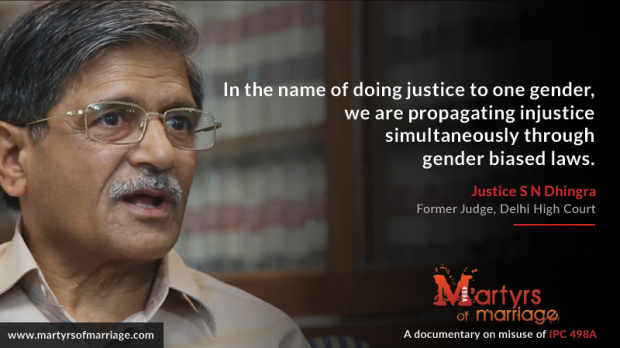
BUILD A BOND: Spend considerable time with people whose stories you are telling. Know them. Know their life. Know who they are. Know what their life is. It is very important to have a bond with those whose lives you are capturing. This gives a sense of ease and comfort to people, and they feel relaxed in front of the camera. It is very essential to tell them about the importance of your film and make them feel connected in whole to the project. People open up much better to you if they know you well. When you interview them after knowing them for a while, they express themselves in a much better way. Martyrs of Marriage showcases that truth of people’s lives that they don’t feel very comfortable talking about because they are afraid of being judged. I spent considerable time connecting to people connected with the issue, involved in the issue and facing this problem to make them comfortable talking about it and sharing their personal lives with me on camera. The emotions that flow as a result, I believe, give a very humane feel to the film.
CONSENT FORMS: This was my biggest lesson while working on this film. I thought capturing someone for hours on camera is a proof in itself that you have consent of the person to tell their story to the world. I was wrong. In India, we do a lot of things because of mutual faith and trust and usually keep the legal aspects of these things aside. It’s a mistake. People change. Their perspectives change and their equations with you change as well. I realized this after a person who I had shot with for almost two years took her consent back from the film. Please ensure you have the consent of people in your film with very detailed documentation on how their footage could be used and very importantly – for perpetuity.
PARTIAL EDITS: Most documentary filmmakers keep on shooting content for the documentary without knowing whether they will use that content or how much of it they will use in the final edit. Hence, most end up with hours and hours of raw footage that becomes extremely difficult to handle. I did the same in my project. I shot extensively and had about hundred hours of footage by the end. I realized how tough it was to handle such exhaustive footage when I sat down transcribing and editing it. I had to run through every interview multiple times for hours and hours to pick the most important bits from it. If this is done immediately after the shoot, you have lesser footage to deal with when you start editing. So, partial edits and transcribing footage while you are shooting can save you a lot of hassle during final edit.
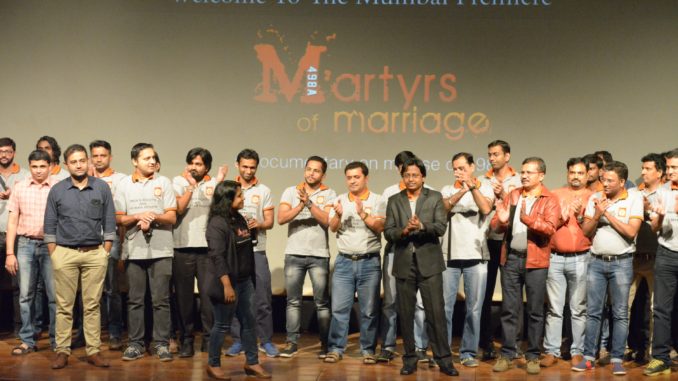
DISTRIBUTION STRATEGY: There’s no point if you make a brilliant film but do not have right distribution strategy for it. As documentary filmmakers, the biggest challenge we face is taking our films out to masses, especially if it’s a low budget project. There are hardly any platforms in India that showcase documentaries on a revenue-share basis. International websites have payment gateways that are not very user friendly. So the options left usually are Youtube or public screenings where you hardly recover the money spent, forget profits. We have had documentaries that had theatrical release but those are the ones few and far in between. So, chalk out how exactly you wish to take your film out to the audience. My learning through Martyrs of Marriage is not to have a phased distribution. Your public screenings, festival submissions, digital distribution etc should all happen at once to get maximum attraction towards the film. Anyone reading about your film at the time of release should have immediate access to it because the attention span of people in today’s time is extremely low. Once they have forgotten about it, they won’t come back. So plan your promotions and distribution ahead of your film’s release.
DON’T OVER SPEND ON FESTIVALS: If you have money of course you can, but I would suggest people to choose their festival submissions very carefully. Even small film festivals today have considerable submission fee. If you spend too much sending the film to several film festivals and don’t end up winning anything, it’s quite a disappointment. Understand the process, evaluate your chances of winning and then invest.
Last but not the least, never give up. Believe in yourself that you will be able to pull it through no matter how difficult it gets. Reach out to established filmmakers for guidance if you are in doubt. I did and their perspectives definitely helped.
I hope these lessons I learnt will help you in working on your own films. Keep the spirits of documentaries alive.
[For more information about the film, log onto its website here. It is now streaming on Netflix.]

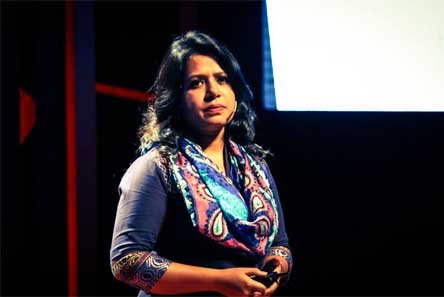

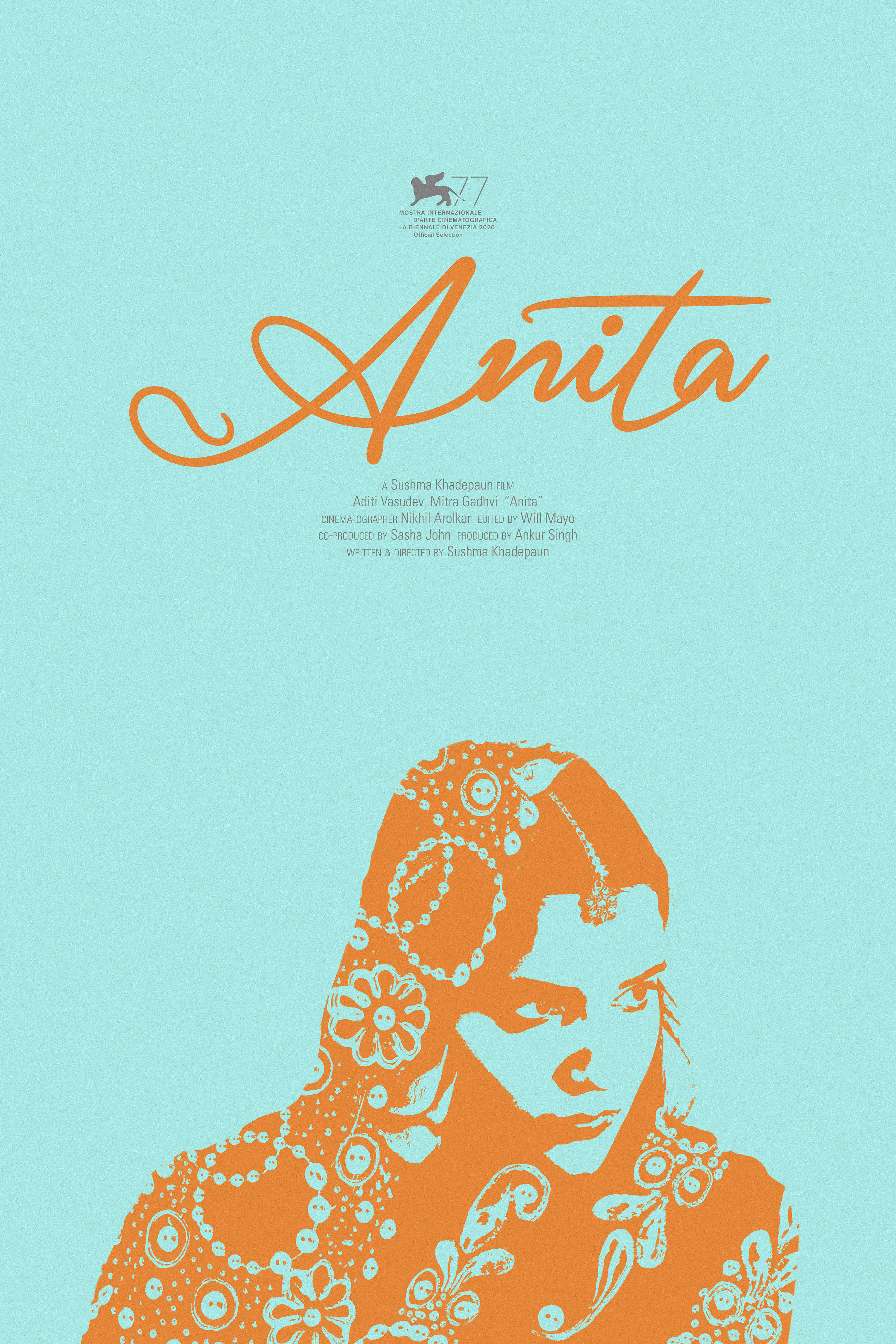
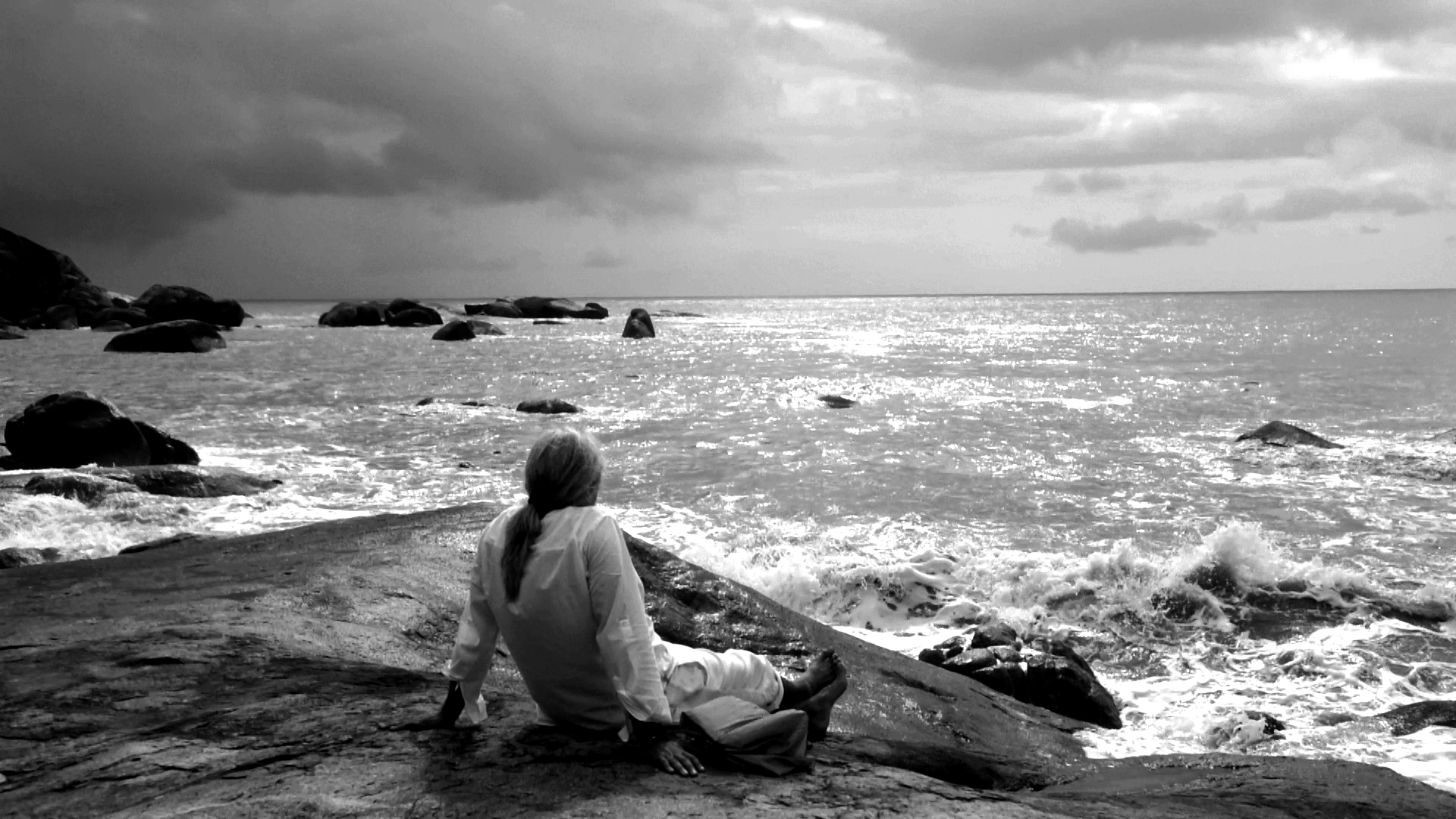
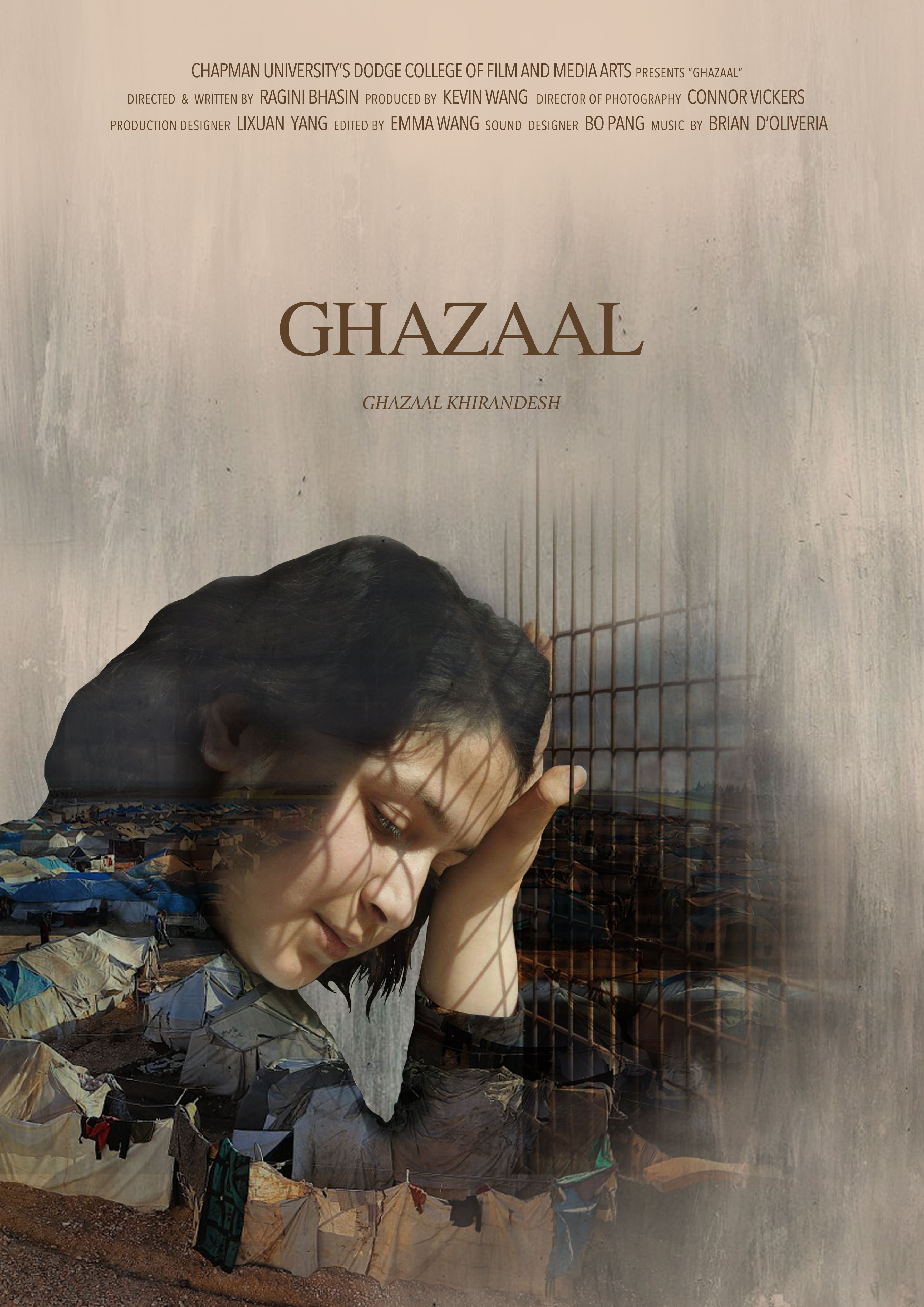


Leave A Comment
You must be logged in to post a comment.